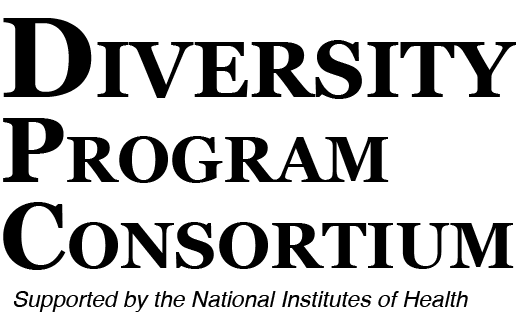



DPC Hallmark STU-4
By Krystle Cobian
November 2019
“Mentorship is one catalytic factor to unleash individuals’ potential for discovery, curiosity, and participation in STEMM [science, technology, engineering, math, and medicine] and subsequently improve the training environment in which that STEMM potential is fostered.” (NASEM, 2019, p. ix-x)
The practice of mentoring new scientists along their career paths has been integral to cultivating the scientific workforce. In an effort to address the gap between research on effective mentorship and how mentorship is practiced in science, technology, engineering, and math (STEM) disciplines at colleges and universities, the National Academies of Sciences, Engineering, and Medicine (NASEM) developed a report to summarize what is known about effective mentoring relationships, particularly for STEMM1 disciplines (NASEM, 2019). While the report affirms the importance of mentorship and provides recommendations based on current mentorship research, there is still much to learn about the role of trainees’ perceptions of mentorship, and to what extent satisfaction with the quality of mentorship matters in comparison to other aspects of mentorship, such as the quantity of mentors or a specific mentoring structure (Eby et al., 2013).
Much of the literature on satisfaction with mentorship is derived from studies focused on working professionals in non-STEM fields. These studies suggest that vocational and role modeling support (Ensher, Thomas, & Murphy, 2001) and investing in protégé training rather than mentor training (Kasprisin, Single, Single, Ferrier, & Muller, 2008) can contribute to perceptions of higher satisfaction with mentoring relationships. Lastly, a study on employees’ career attitudes by Ragins, Cotton, & Miller (2000) suggests that satisfaction with a mentoring relationship matters more than the design of a mentoring program on career attitudes.
For underrepresented (UR) undergraduate students in STEM fields, quality mentorship in the later undergraduate years appears to be positively related to science self-efficacy, science identity, and valuing objectives of the scientific community (Estrada, Hernandez, and Shultz, 2018). Particularly for African American undergraduates majoring in STEM, shared values between mentors and mentees might matter more than sharing similar social identities (Hernandez, Estrada, Woodcock, & Shultz, 2017). For STEM graduate and early career training,
mentors who were perceived as valuing and supporting graduate students’ research contributions was strongly predictive of satisfaction with graduate training (Hayes & Bigler, 2013).
Satisfaction with quality of mentorship is one of the hallmarks of success of the Diversity Program Consortium. The DPC aims to measure the relationship between mentoring interactions to examine the types of mentoring that increase students’ commitment to a career in the biomedical sciences, particularly for underrepresented and disadvantaged groups in the biomedical disciplines. A better understanding of how mentorship supports these groups can provide a blueprint for colleges and universities interested in supporting the success of students with biomedical career aspirations.
References
Eby, L. T. D. T., Allen, T. D., Hoffman, B. J., Baranik, L. E., Sauer, J. B., Baldwin, S. Morrison, M.A., Kinkade, K.M., Maher, C.P., Curtis, S., & Evans, S.
C. (2013). An interdisciplinary meta-analysis of the potential antecedents, correlates, and consequences of protégé perceptions of mentoring. Psychological Bulletin, 139(2), 441-476.
Ensher, E. A., C. Thomas, and S. E. Murphy. 2001. Comparison of traditional, step-ahead, and peer mentoring on protégés’ support, satisfaction, and
perceptions of career success: A social exchange perspective. Journal of Business and Psychology, 15(3), 419–438.
Estrada, M., Hernandez, P. R., & Schultz, P. W. (2018). A longitudinal study of how quality mentorship and research experience integrate underrepresented
minorities into STEM careers. CBE—Life Sciences Education, 17(1), ar9.
Hayes, A. R., & Bigler, R. S. (2013). Gender-related values, perceptions of discrimination, and mentoring in STEM graduate training. International Journal
of Gender, Science and Technology, 5(3), 254-280.
Hernandez, P. R., Estrada, M., Woodcock, A., & Schultz, P. W. (2017). Protégé perceptions of high mentorship quality depend on shared values more than on
demographic match. The Journal of Experimental Education, 85(3), 450-468.
Kasprisin, C. A., Single, P. B., Single, R. M., Ferrier, J. L., & Muller, C. B. (2008). Improved mentor satisfaction: Emphasising protégé training for adult‐age
mentoring dyads. Mentoring & Tutoring: Partnership in Learning, 16(2), 163-174.
National Academies of Sciences, Engineering, and Medicine (NASEM). (2019). The science of effective mentorship in STEMM. Washington, DC: The
National Academies Press. https://doi.org/10.17226/25568.
Ragins, B. R., Cotton, J. L., & Miller, J. S. (2000). Marginal mentoring: The effects of type of mentor, quality of relationship, and program design on work
and career attitudes. Academy of Management Journal, 43, 1177–1194.
Suggested citation
Cobian, K. (2019). Satisfaction with Quality of Mentorship Contributes to Persistence on a Biomedical Career Path. Literature Brief. Los Angeles, CA: Diversity Program Consortium (DPC) Coordination and Evaluation Center at UCLA. https://www.diversityprogramconsortium.org/